Graduate dives deep for water conservation awareness
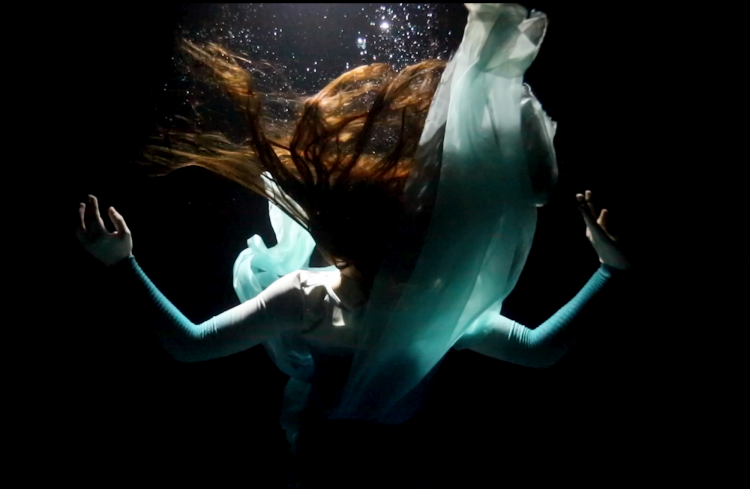
Students go to great lengths to create their honor’s theses. Rae Lewark, a May graduate with a major in environmental studies and a dance minor, went to the depths for hers.
Lewark combined her passions for environmental sustainability, self-expression and the element of water to make a short film titled The Life of Water. Becoming the Water Cycle, in which the path of the water cycle is depicted by Lewark dancing both in and under water.
Watch the film: The Life of Water. Becoming the Water Cycle
The film explores the power of humanity’s relationship to water. Viewers are invited to explore and strengthen their own connection to water, while the “voice” of water questions and encourages humanity’s ancient connection to water in its varied forms.
“I wanted to do a project that looked at how art and science can be used to communicate hard-to-conceptualize environmental topics,” said Lewark, who transferred to CU Boulder in 2020. “I wanted to focus on water because it’s so important to me and I spend so much time in it. I wanted to follow the whole water cycle and show people something they’ve never seen. This film shows how I feel about water.”
To make the film, Lewark drew on her skill and artistry in free diving, a form of underwater diving that does not rely on the use of a snorkel or scuba gear. Diving with just one breath for upwards of three minutes at a time, Lewark gracefully moves through water in a silent underwater dance.
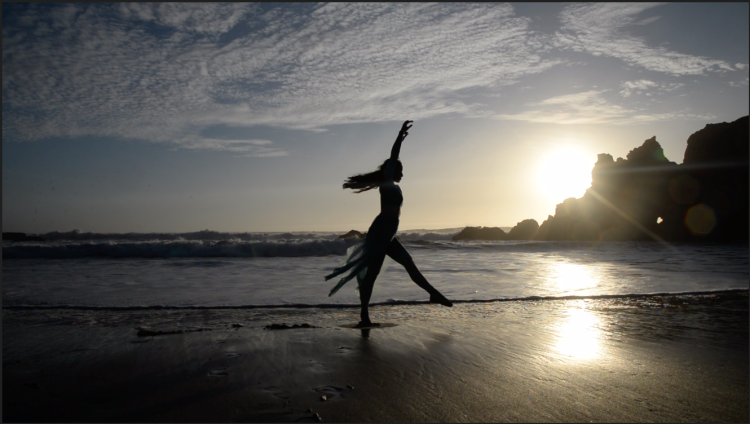
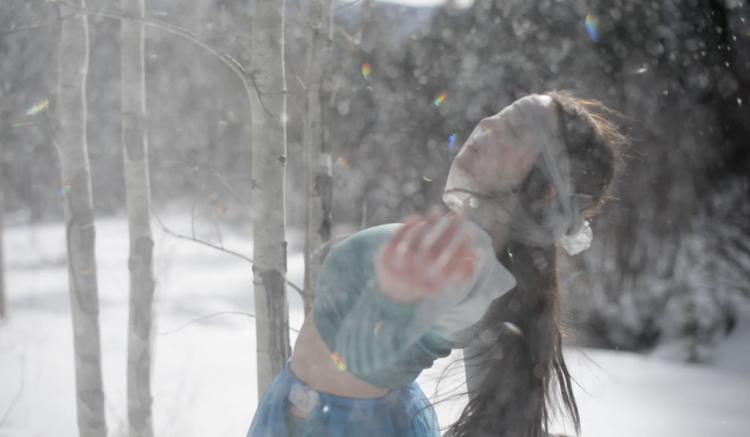
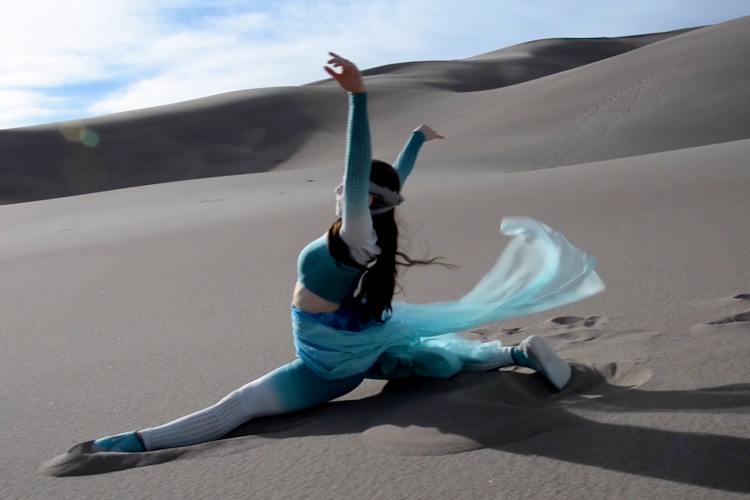
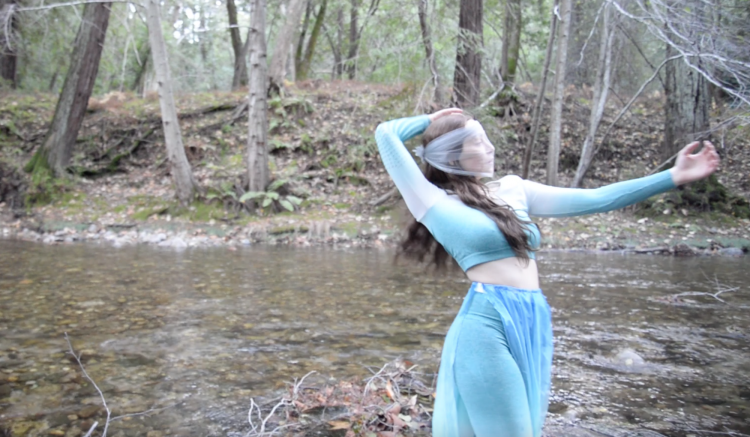
Photos from Rae Lewark's film Life of Water. Becoming the Water Cycle. Lewark performs on beach, in snow, in desert and near a creek.
“Being underwater is incredible,” she said. “It’s my favorite place to be on this planet. And it doesn’t really matter what body of water it is. You have that freedom of no gravity, the ability to move with ease and grace in a way you can’t anywhere else.”
The video was filmed in a variety of locations in and out of water, from a glacier, a beach and sand dunes to a lake and a river. She used a rotation of four videographers for the different locations. When filming underwater, the videographer wore scuba gear while Lewark relied on her ability to hold her breath. For safety, she always free dives with a partner.
Filming began in August 2020 and finished at the start of the spring semester this year, which meant much of filming took place during the winter. Since she was often dancing in below-freezing temperatures, in and out of the water, without exposure-wear to keep her warm, the videographers were instructed on how to recognize signs of hyperthermia.
The idea for making her thesis project into a film instead of a written one originated when she began questioning how to make people care as intensely about water sustainability as she did. What better way to do that, she reasoned, than utilizing her passion for free diving and dance?
“I felt like I could write a thousand papers, but would a paper make people care about water?” she said. “So, I started to look at where you start with engaging people. You need to get a connection to nature to make them care about what you’re asking them to change their life for. The goal of the video was to portray water in a human way to increase empathy for the topic. If you have empathy for something then you’ll go out of your way to protect it.”
Lewark grew up in Denver. When she was 16, she auditioned at the Downtown Aquarium in Denver to perform as a mermaid in an underwater show. Too young to work there at the time, she focused on earning a scuba certification. In the class the instructor talked about free diving. Listening to the instructor talk about the athleticism and beauty of the sport, Lewark was hooked and took lessons from an instructor certified to teach it.
Drawn to the native Hawaiian way of existing in the natural world and the islands’ unique ecosystems, Lewark studied marine biology at Hawaii Pacific University for two years. Living there had a profound impact on how she approached the filming process and how she interacts with water. In January 2020 she transferred to CU Boulder.
Lewark has been free diving for seven years and has performed in aquariums all over the country and has also done stunt work and modeling under water. While considering her next direction, she is taking time off before deciding on a PhD. Lewark recently earned an Emergency Medical Technition certification so she can assist with water search and rescue. She also plans to continue making ecological films and advocating for nature conservation.
“I was always very drawn to water,” she said. “My parents had to keep me from jumping into ponds and streams wherever we went. I became obsessed with water––the life within it––and I began to do everything in my power to be a part of that.”


